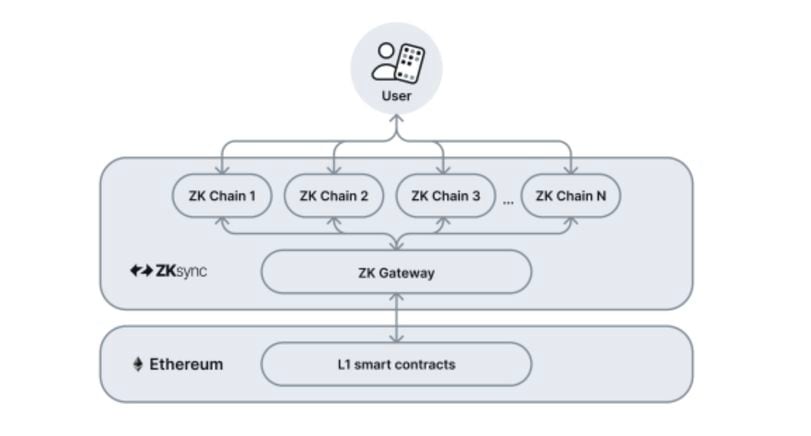Matter Labs, the main development firm behind the layer-2 network ZKsync, has introduced a new roadmap called ZKsync 3.0, aimed at making the ecosystem more interconnected – including a new "Elastic Chain" that somewhat resembles rival Polygon's AggLayer, released earlier this year.
At the core of ZKsync "3.0" is the v24 upgrade, released June 7, turning “ZKsync from a single ZK chain into an Elastic Chain,” the Matter Labs team wrote in a blog post shared with CoinDesk.
This Elastic Chain is composed of multiple chains in the ZKsync ecosystem, but users will feel like they are using a single chain, according to the team.
Last year, Matter Labs last year released their ZK Stack, which is a toolkit that allows developers to build their own blockchain on ZKsync’s technology. Essentially, these custom chains would all be interconnected through the Elastic Chain.
“The Elastic Chain is an infinitely extensible network of ZK chains (rollups, validiums and volitions), secured by math and seamlessly interoperable under uniform intuitive UX,” Matter Labs wrote.
The concept is part of a new trend in blockchain aimed at making interoperability within different ecosystems more seamless for users. Matter Labs’ competitor, Polygon, has a similar concept that they released in January, called the “ AggLayer .”
The new Elastic Chain will be composed of three core components, according to Matter Labs.
The first component consists of the “Native Token Vault” and “Shared Router,” which is at the core of the network.
“Implemented as a series of smart contracts on Ethereum, these components are responsible for managing the state of the network, handling chain registrations,” the team wrote.
The second component is their ZK Gateway, which is a piece of middleware that connects the Ethereum blockchain to ZKsync’s ZK chains, that allows for interoperability between the different chains in the ZK sync ecosystem.

“Together, these core components ensure that ZK chains can interact and transact with each other efficiently, inheriting the security of Ethereum, and forming a network that can scale horizontally without compromising the core properties that make public blockchains so powerful,” Matter Labs wrote.
Read more: ZKsync Airdrop of 'ZK' Token Puts Initial Market Cap Near $800M




